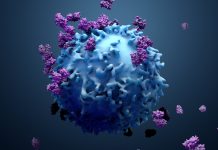The past ten years have seen significant progress in cancer care, detecting cancers earlier and managing them more successfully and less invasively on a global scale
The World Health Organization (WHO) and various international organisations, including the Union for International Cancer Control (UICC), have developed initiatives and knowledge sharing programmes to assist countries in better understanding the nature of the cancer burden in their country, provide costing tools to implement resource-efficient policies, tackle childhood cancer, cervical cancer and breast cancer.
More and more governments are expanding health coverage and implementing national cancer control strategies.
World Cancer Day 2024: Reducing global health inequalities
Access to basic cancer medicines and treatment facilities remains poor in many parts of the world, however. As we marked World Cancer Day 2024 on 4 February with the campaign to close the care gap, we must ask ourselves: How can we transform our approach to cancer care and healthcare in general to reduce the deep inequities in health and life expectancy that exist across and within countries?
One overarching answer lies in integrated people-centred health systems. With this approach, healthcare delivery centres on people’s life needs and preferences rather than strictly focusing on treating the disease.
Fostering patient-centred care
People-centred care is set up to offer services that meet the needs of often vulnerable and underserved groups, such as indigenous peoples, the LGBTQ+ community, people with disabilities and those with financial challenges. It entails an understanding of different cultural and social contexts, as well an appreciation of personal preferences regarding care – valuing quality of life, for instance, over invasive treatment.
It manages patients differently according to gender, age and other socioeconomic factors that can lead to disparities in cancer incidence, survival and quality of care between populations.
Services that support this approach include language services, culturally appropriate health education and health literacy programmes, community health workers and outreach, sliding scale fee structures, transportation services, integrated social and psychological care, telehealth services, and policies for universal health coverage.
World Cancer Day 2024 Equity Report
An example highlighted in the World Cancer Day 2024 Equity Report released by UICC, ahead of World Cancer Day, is Japan’s broad cancer control strategy, combining public awareness, digital healthcare advancements, and a collaborative effort between the government, local authorities and citizens.
This has enabled the country to respond effectively to increasing rates of cervical cancer, in large part due to controversy and hesitancy surrounding the HPV vaccine, by making the vaccine widely available and promoting it to previously unreached populations.
Similarly, while Jordan faces a different set of challenges, with fewer resources at its disposal and healthcare services concentrated in urban centres, the country is committed to equitable healthcare. The King Hussein Cancer Foundation and Center (KHCF/KHCC), for example, provides mobile clinics for early detection in remote areas, awareness campaigns to combat stigma associated with cancer and financial support for disadvantaged patients, including refugees, through the Goodwill Cancer Care Fund.
Technology is a crucial component to the success of people-centred health and bridging gaps in healthcare delivery. Telemedicine, electronic health records, mobile screening units and at-home testing kits have gone a long way to reaching people living in remote areas; they also serve toempower patients, reducing the impact of treatment on families – childcare and taking time off from work, or travel and accommodation expenses, for example – and improving the chances of patients completing their treatment successfully.
UICC released ahead of World Cancer Day its World Cancer Day 2024 Equity Report, which provides local perspectives and experiences on inequities in cancer care in regions around the world, as well as expert recommendations on how to address them.
Furthermore, UICC and many other organisations and individuals around the world are calling on governments this World Cancer Day to close the gaps that exist within their own countries.
Fostering patient-centred care that acknowledges the unique needs of all patient populations and ensuring that each individual actively engages in their care decisions is a crucial component of providing an equitable level of access and availability of cancer care to all populations.
This piece was written and provided by Cary Adams
Editor's Recommended Articles
-
Must Read >> AI unlocks cancer treatment secrets














